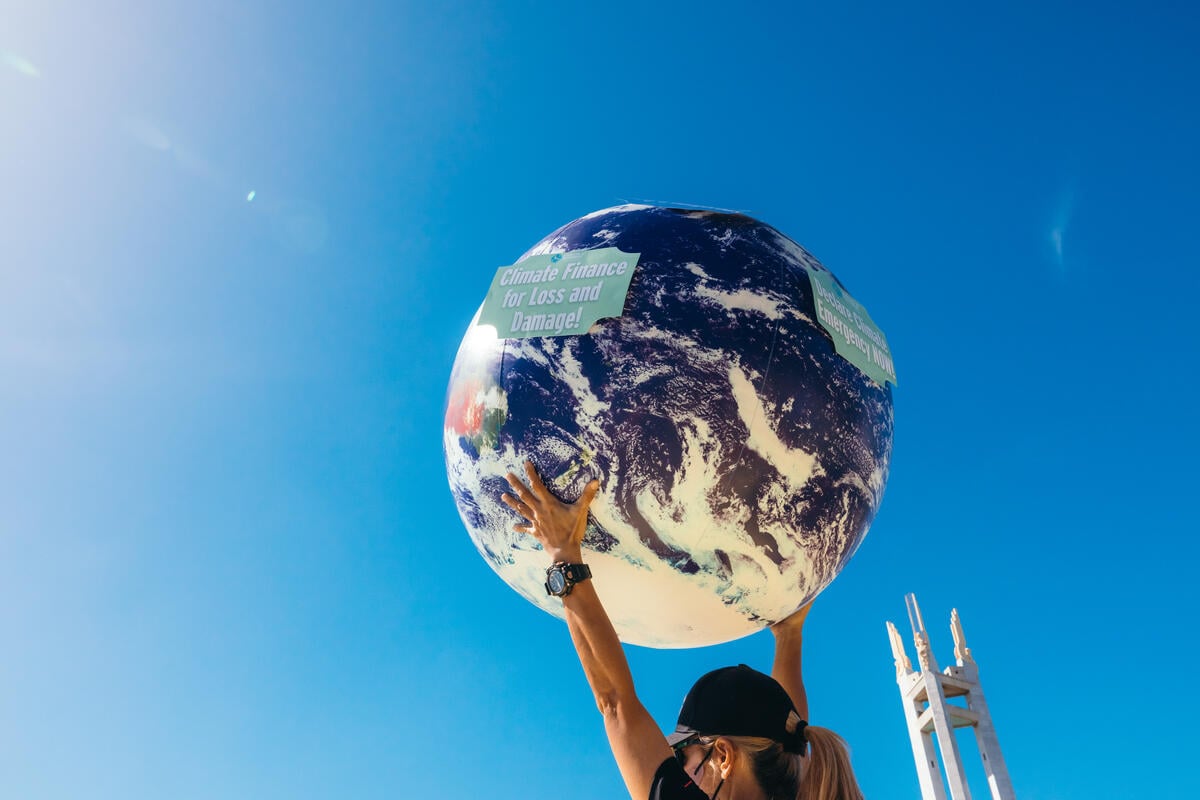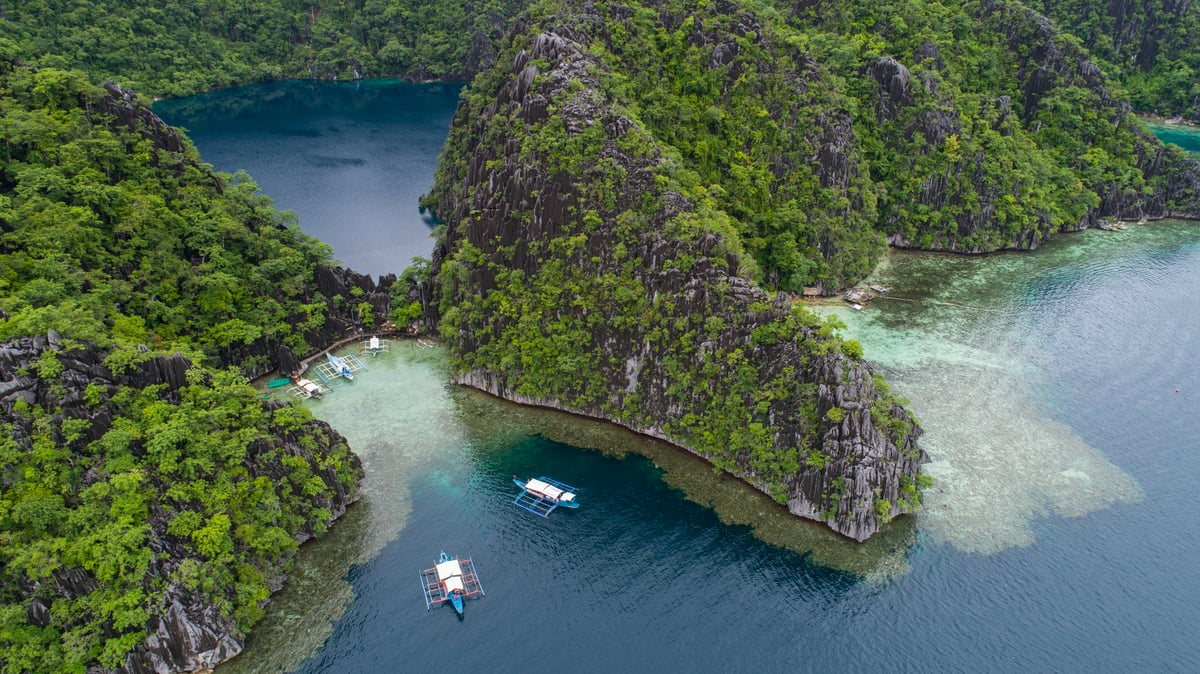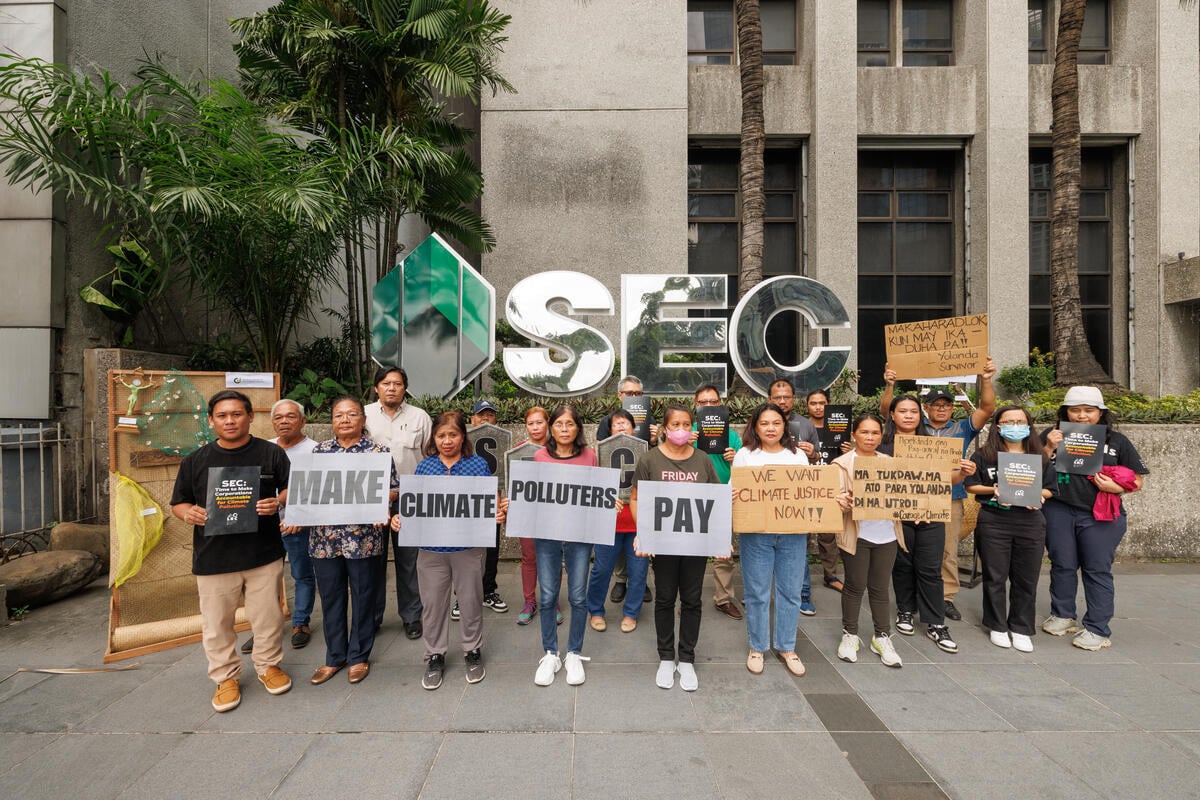Environmental groups demand cut in single-use plastics to curb plastic pollution
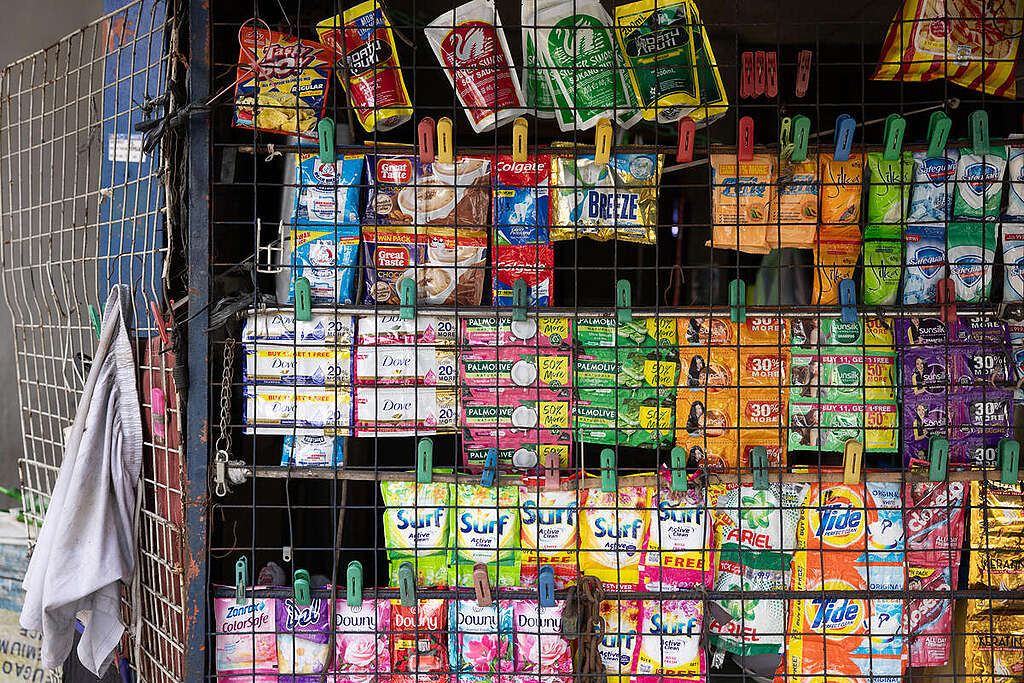
QUEZON CITY, Philippines (16 April 2024) — Filipino environmental groups reiterated demands for strong policies and international agreements to put an end to single-use plastics (SUP), as a new report showed an alarming prevalence of sachet packaging from brands who have produced the most SUPs in past years.
This year’s #BreakFreeFromPlastic (BFFP) Regional Brand Audit report, based on citizen science brand audits across the Philippines, India, Indonesia, and Vietnam, focused on identifying companies producing sachets, small flexible pouches, or packets.
Between October 2023 and February 2024, 807 volunteers organized brand audits in 50 locations across India, Indonesia, the Philippines, and Vietnam. Together, these volunteers from 25 organizations collected a total of 33,467 sachets, which were traced to 2,678 different brands. In the Philippines, Brand Audits were conducted from October to December 2023, across the following locations: Metro Manila, Malabon City, Dasmarinas City, Davao City, Iloilo City, and the municipality of E.B. Magalona, Negros Occidental. A total of 10,801 pieces of sachets were gathered and examined—making 32 percent of the regional total—to determine the top five sachet polluters: Yes 2 Healthy Life (1028 sachets), Mayora Indah (902), Procter & Gamble (889), Nestlé (771), and JG Summit Holdings (673).[1]
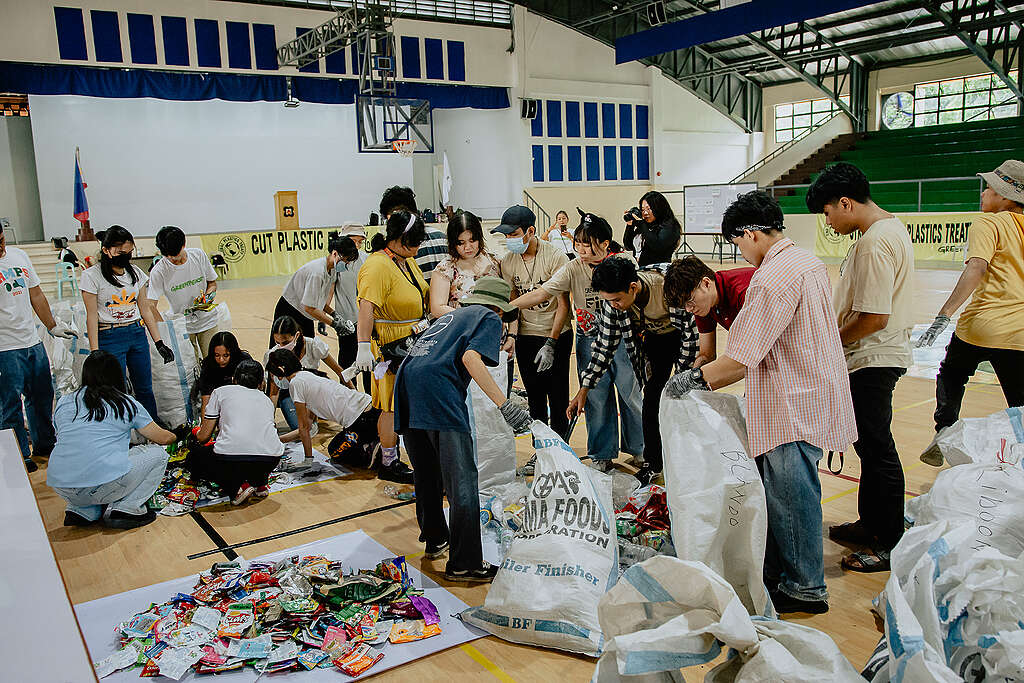
The report showed that many of the companies that topped this sachet-focused list have previously been identified as top plastic polluters in global Brand Audits, dating back to 2017 and featuring a wider array of SUP packing. These companies are aware of the difficulties in handling sachet waste and have even pledged to make their plastic packaging reusable, recycled, or compostable by 2025. However, their continued reliance on sachets perpetuates pollution, posing threats to both human health and the environment. In a duplicitous move, some corporations also opt for false solutions, such as burning sachets as fuel for various industries, further exacerbating the issue.
The ongoing struggle with sachet waste leads to sachets ending up in landfills, rivers, and beaches; harming ecosystems, wildlife, and ultimately, human health and livelihoods. Moreover, sachet disposal, including burning for industrial purposes, emits toxic pollutants, poses health risks to nearby communities, and their breakdown results in harmful microplastics. Sachets also perpetuate the cycle of fossil fuel extraction and exacerbate the climate crisis.
Given the continued prevalence of sachets in consumer goods, and the fact that the same companies are perpetuating our dependence on single-use plastic packaging, Greenpeace believes the Philippine government must treat this as an urgent issue and enact a national ban on sachets and other SUPs, through any of the following measures: 1) ensuring the Extended Producer Responsibility Act of 2022 focuses on waste avoidance and reduction, which would entail a ban on SUPs; 2) including sachets in the list of non-environmentally acceptable products (NEAP) under Ecological Solid Waste Management Act of 2000 (RA 9003), which would mean sachets must be banned, or; 3) passing and implementing a law banning SUPs, including sachets, at a national level.
BFFP also issued the following calls on fast-moving consumer goods (FMCG) corporations:
- Corporations must take immediate action to phase out or quit sachets, to effectively address the environmental, social, and economic impacts of these single-use plastics.
- Reveal their plastic use by providing public data on the type and quantity of packaging used in different markets, and the chemicals in that packaging.
- End support for false solutions such as burning plastic and chemical recycling. Sending sachets and other plastic packaging to cement kilns isn’t recycling.
- Redesign business models away from single-use sachets and other single-use packaging of any type – including novel materials such as bio-based or compostable plastics.
- Invest in accessible, affordable reuse, refill, or packaging-free product delivery systems in all markets, while ensuring a just transition for all relevant workers.
Furthermore, Greenpeace, BFFP, and other environmental groups are pushing for a Global Plastics Treaty that would phase down SUP production across the world, in the interest of Global South countries that are disproportionately affected by the impacts of plastic communities. The treaty is currently undergoing negotiations until November 2024. The groups are calling on the Philippine government to side with our communities struggling with plastic pollution, and join the demand for a stronger global treaty that would drastically reduce and eventually eliminate the production of sachets and other SUPs.
Access the 2023 Sachet Brand Audit report.
###
NOTES TO EDITORS:
BFFP’s global brand audit, running for six consecutive years is a participatory community initiative in which branded plastic waste is gathered, counted, and documented by volunteers to identify the companies responsible for plastic pollution.
[1] Key insights from the report:
- The top 10 sachet polluters across the four countries are Unilever, Wings, Mayora Indah, Wadia Group, Balaji Wafers Private Limited, Procter & Gamble, Nestlé, Yes 2 Healthy Life, JG Summit Holdings, and Salim Group.
- All ten companies are in the business of selling fast-moving consumer goods, primarily processed food and beverage manufacturing, as well as some personal care products. Sachets from food packaging constituted 86% of the sachet waste collected.
- A staggering 2,678 brands that sell products in sachets were audited across four countries: India (380), Indonesia (1,212) the Philippines (784), and Vietnam (395), which indicates the proliferation of this problematic, single-use format.
- Multilayer sachets dominate the packaging landscape, comprising 57% of the total sample, while single-layer packaging accounts for 41%. This is significant because the multiple layers of different materials make recycling of sachets impossible.
- Medium-sized (52.5 x 74.25 mm) sachets – approximately the size of a standard pack of Kleenex tissues – made up the largest fraction of the sample at 35%, followed by small (26.25 x 37.125 mm) sachets at 34%, large sachets (105 x 148.5 mm) at 14%, extra small (13.125 x 18.5625 mm) sachets at 11% and extra large (210 x 297 mm) ones at 6%.
In India, Indonesia, the Philippines, and Vietnam, sachet-driven economies have reshaped the landscape of daily commerce. Despite their touted affordability, sachets burden governments and communities with long-term waste management costs and environmental cleanups.
FROM THE BRAND AUDIT PROJECT TEAM:
Marian Ledesma, Zero Waste Campaigner, Greenpeace Philippines
“Corporations are driving the plastic crisis in the Philippines, but they can help solve the problem their products create. With sachets comprising 52% of the country’s residual plastic waste and plastic production only getting bigger, there is no doubt that corporations must act now. They must transition away from single-use plastic right away, starting with sachets, and begin adopting wide-scale reuse and refill models in the Philippines.”
Regine Joy Nayve, Program Officer, Mother Earth Foundation
“The sachet culture has taken over the originally sustainable Filipino Tingi Culture. A staggering estimate of 164 million pieces of sachets are used and discarded in the Philippines daily (Plastics Exposed, GAIA). The harmful effects of plastic pollution and climate change stemming from GHG emissions released from plastic production are deeply and disproportionately felt by Filipinos presently. Thus, Mother Earth Foundation calls for a redesign of current systems to reduce plastic dependence, transition away from using plastic, and restore the sustainable Filipino Tingi Culture – which encompasses refill and reuse systems. We must act now more than ever.”
Mark Peñalver, Executive Director, Interfacing Development Interventions for Sustainability (IDIS)
“Sachets have found their way to our watersheds polluting our water sources and endangering wildlife and water consumers. In Davao City, we have been collecting loads of waste from Panigan-Tamugan Watershed, the drinking water source of the city, and most of this waste are plastic sachets. If we maintain business as usual, the time will come when we will be drinking plastics too. Hence, it is imperative that a strong local-to-global plastics policy be in place.”
Miko Alino, Project Coordinator – Sachets, Break Free From Plastic (BFFP)
“The deceptive convenience of sachets cripples our strained government resources. Municipalities are forced to burn them which releases toxins into the air, or send them to already congested landfills. Sachets disfigure our beautiful landscapes and also harm vital economic cogs in the region, like the tourism industry. Let’s quit sachets and ensure that these problematic, single-use formats are phased out under an ambitious global plastics treaty.”
Aloja Santos, Founding President of the newly formed Philippine National Waste Workers’ Alliance (PNWWA), and President ofDumaguete Women Waste Workers Association
“Sachets are a major problem in the Philippines since they are not recyclable and have little to no value. Waste workers strongly support initiatives aimed at reducing plastic pollution and promoting reuse options. For someone who has experienced the plastic-free tingi culture growing up, it is exciting to see a resurgence of refill initiatives in the Philippines, in the form of zero-waste sari-sari stores. To accelerate progress, policymakers should enact bans on sachets and single-use plastics, while incentivizing reuse and refill alternatives.
MEDIA CONTACT:
Maverick Flores, Communications Campaigner
Greenpeace Philippines
[email protected] | +639176211552

